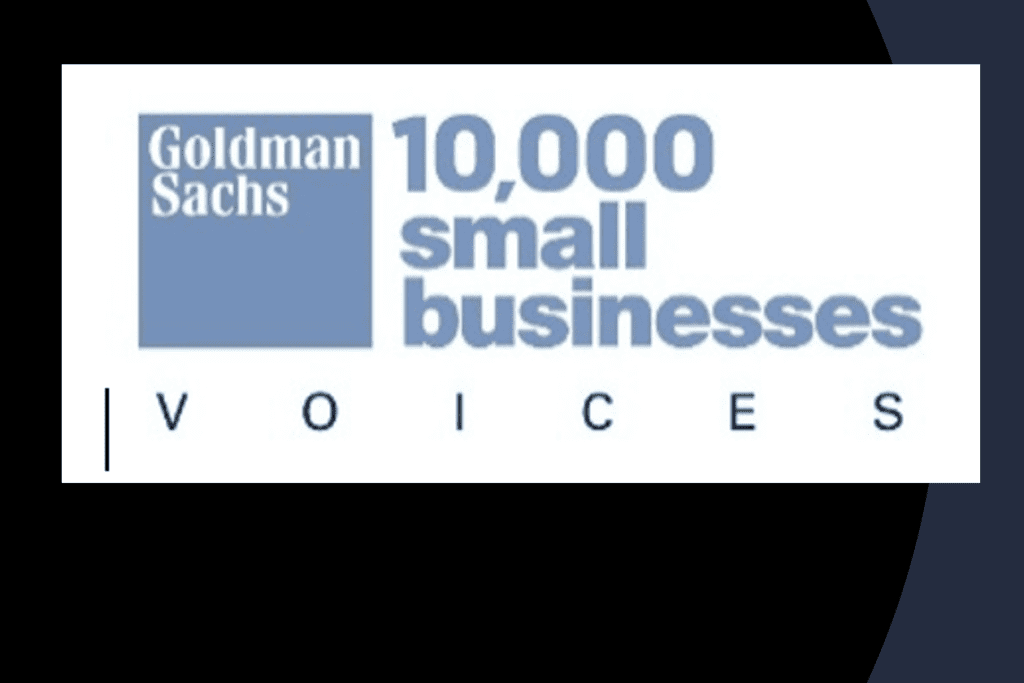Search Posts
Recent Posts
- Vinny Paz to be inducted TODAY into the International Boxing Hall of Fame – CES Boxing June 7, 2025
- In the News… quick recap of the week’s news (6.7.25) June 7, 2025
- Burn with Kearns: Strong without the spend: How scraps became strength tools – Kevin Kearns June 7, 2025
- Rhode Island Weather for June 7, 2025 – Jack Donnelly June 7, 2025
- How to advocate for threatened properties: The Heritage Alliance of Pawtucket June 7, 2025
Categories
Subscribe!
Thanks for subscribing! Please check your email for further instructions.

UPDATED: Inflation: Bad to Worse – Goldman Sachs 10,000 Small Businesses survey released
Survey results of 1,107 Goldman Sachs 10,000 Small Businesses participants conducted by Babson College and David Binder Research from April 11-14, 2022 will be released Monday, April 25th at 9am. This article will be UPDATED to include those findings.
The survey included small business owners from 48 U.S. states and two U.S. territories.Goldman Sachs 10,000 Small Businesses Voices is releasing Monday morning. This new survey captures how the impact of inflation has gone from bad to worse over the last few months, hurting bottom lines and the ability to hire and retain good employees.
Below are a few overall themes from the survey:
- Inflation challenges have greatly worsened since January. Small business owners don’t expect this challenge to subside in the next six months.
- Nearly three-quarters are being negatively impacted by higher energy prices. This is true across all industries, not just the transportation sector. Even interior designers are citing high energy prices as a top challenge.
- Inflation is exacerbating workforce challenges. Inflation is impacting workforce challenges as businesses raise prices and wages to compete in hiring and retaining workers.
***
The Goldman Sachs 10,000 Small Businesses Survey:

Increasing Inflationary Pressures, Higher Energy Costs Squeezing Small Businesses
New Survey Data Shows
Small Business Owners say inflation is hurting their ability to hire and retain workers, forcing them to raise prices on consumers; 88% of respondents say inflationary pressures on their business have worsened since January
73% of all respondents across all sectors say rising energy prices are impacting their business
Small business owners across the country and in Rhode Island are reporting inflationary pressures are hurting their bottom line and adversely impacting their ability to hire and retain workers, according to new survey data of small business owners from Goldman Sachs 10,000 Small Businesses Voices. 91% of small business owners say broader economic trends, such as inflation, supply chain issues, and workforce challenges, are having a negative impact on their business. Further, nearly three quarters (73%) of all small business owners across all sectors said increasing energy costs are having negative impacts on their bottom lines.
The health of the economy is another worry, as 56% of small business owners say the economy has worsened since January 2022. And while hiring and retaining qualified workers remains the top challenge cited by small business owners, concern for inflationary pressures have increased over the last few months; 88% said inflationary pressures on their business have increased since January 2022. Previous worries have not abated: over that same period, 80% said supply chain challenges worsened or stayed the same and 88% said hiring challenges worsened or stayed the same. Only 5% believe both inflation and supply chain challenges will subside within the next six months.
“From Aquidneck Island to Woonsocket, and everywhere in between, small businesses are the lifeblood of Rhode Island’s economy. But right now, inflation and supply chain problems keep holding us back on the road to recovery. It doesn’t have to be this way,” said Patti Watson, who owns and operates Taste Design in Middletown. “Policymakers have already done so much to help small businesses make it through the worst parts of the pandemic. Now, as we continue to rebuild our economy, it’s critical that we take steps to tailor government programs and services to meet the needs of today’s small businesses and the challenges we face.”
Inflation has contributed to workforce challenges, as the high costs of attracting and retaining employees is affecting small businesses’ bottom lines and ability to do business, according to the survey. 80% of small business owners say their business’ financial health has been negatively impacted by inflation over the past six months. Of those, 67% have increased wages to retain employees, while 61% have increased wages to attract new employees. To offset these increased costs, 60% have passed them through to the consumer by raising the prices of goods or services.
Small business owners believe it is a tale of two recoveries. 88% of respondents say small businesses are struggling relative to larger companies in their local communities. The feeling of a recovery favoring big business goes deeper, with:
- 42% reporting they have lost employees to larger businesses that are paying more
- 65% of businesses impacted by supply chain challenges saying it is a problem for their business that suppliers are favoring large businesses over small businesses
- 70% worry about employees leaving their businesses because larger businesses can offer higher pay and more generous benefits
Small business owners believe Congress can better support small businesses with more modern programs. 86% believe the federal government should do more to level the playing field so small businesses are better able to compete with larger companies, while 93% say the federal government should do more to tailor programs and services to better reflect the realities and needs of small businesses.
“Small businesses are sending a clear signal that the economy and the challenges they face – like inflation, workforce, supply chain and energy costs – are going from bad to worse,” said Joe Wall, National Director of Goldman Sachs 10,000 Small Businesses Voices. “It has been twenty-two years since Congress reauthorized the Small Business Administration. With small businesses struggling to compete with larger companies and suffering setbacks as they recover from the pandemic, it is time to modernize the Small Business Administration through reauthorization to meet the challenges of today’s economy.”
This data is based on a survey of 1,107 Goldman Sachs 10,000 Small Businesses participants conducted by Babson College and David Binder Research from April 11-14, 2022. The survey included small business owners from 48 U.S. states and two U.S. territories.
Survey questions/results
Economic conditions are worsening for small businesses
- 91% of small business owners say broader economic trends, such as inflation, supply chain issues, and workforce challenges, are having a negative impact on their business. This is up from 86% in January of 2022.
- 56% of small business owners say the economy has gotten worse since January 2022, 25% say it’s stayed the same and only 16% said the economy has improved over the same period
- 73% say higher energy prices are negatively impacting their business
Inflation is worsening and small business owners do not expect it to subside
- Compared with January of 2022, have inflationary pressures on your small business increased, decreased, or stayed the same?
- Increased: 88%
- Stayed the same: 10%
- Decreased: 1%
- Only 5% expect inflation to subside in the next six months.
The high costs of attracting new employees and retaining current employees are affecting small businesses’ bottom lines and ability to do business.
- 80% of small business owners say their business’ financial health has been negatively impacted by inflation over the past 6 months(Jan ‘22: 76%)
- Of those small business owners:
- 67% have increased wages to retain employees
- 61% have increased wages to attract new employees
- 60% have increased the prices of goods or services in order to pay employees more
- 60% have had difficulty hiring due to rising salary expectations
- 42% have lost employees to larger businesses that are paying more
- Of those small business owners:
Small businesses do not expect supply chain challenges to subside in the next 6 months
- Compared with January of 2022,do you think supply chain issues have gotten better, worse or stayed the same?
- Better: 11%
- Worse: 43%
- Stayed the same: 37%
- Don’t know: 9%
- Only 5% expect their supply chain issues to subside in the next six months.
- 73% of small business owners say supply chain issues have negatively impacted their bottom line (Jan ‘22: 69%)
Labor was cited as the top challenge for small business owners
- When asked what was the most significant challenge facing small businesses, 45% said difficulty finding and retaining qualified employees (28% said inflation and 17% said supply chain)
- Compared with January of 2022,do you think hiring challenges have gotten better, worse or stayed the same?
- Better: 7%
- Worse: 48%
- Stayed the same: 40%
- Don’t know: 6%
- 90% of those hiring are finding it difficult to recruit qualified candidates for open positions (Jan ‘22: 87%)
- 97% of those having difficulty hiring say hiring challenges are impacting their bottom line
Small businesses want a level playing field to compete with bigger businesses on wages and benefits
- 70% are worried about employees leaving their businesses because larger businesses can offer higher pay and more generous benefits
- 88% of small business owners say small businesses are struggling relative to bigger businesses in their local communities
- 93% say the federal government should do more to tailor programs and services to better reflect the realities and needs of small businesses
Source: Survey of 1,107 Goldman Sachs 10,000 Small Businesses participants conducted by Babson College and David Binder Research from April 11-14, 2022. The survey included small business owners from 48 U.S. states and two U.S. territories.
About 10,000 Small Businesses Voices
Goldman Sachs 10,000 Small Businesses Voices is an initiative for program participants to organize and advocate for policies that matter to them. It builds on Goldman Sachs 10,000 Small Businesses, which over the past decade has provided access to education, capital, and support services to more than 10,000 small business owners across all 50 states, Puerto Rico, and Washington D.C.
